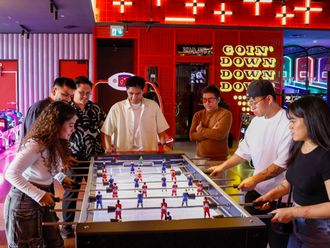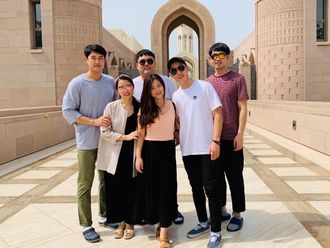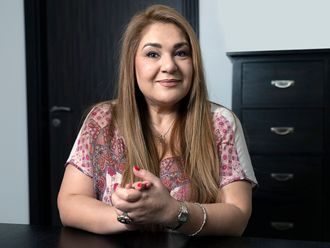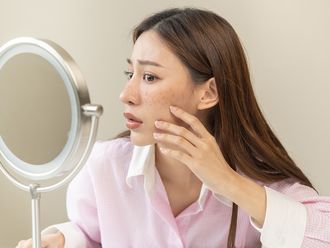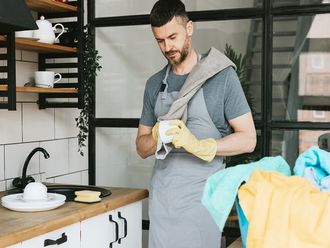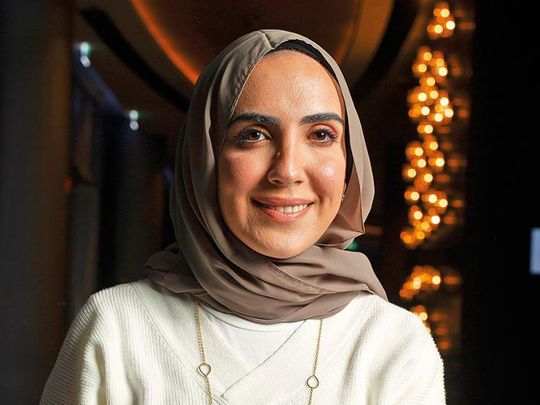
Think trailblazing scientists and Isaac Newton, Albert Einstein and Stephen Hawking spring to mind immediately. How often does Polish-French scientist Marie Curie make that list? The sad truth is, rarely. It’s this narrative the L’Oreal-Unesco For Women in Science programme is trying to change since 1998. ‘The initiative has supported over 3,200 women, rewarded 107 laureates (three have since won Nobel Prizes), granted fellowships in 118 countries till date,’ says Remi Chadapaux, managing director of L’Oreal Middle East. The Middle East Fellowship, now in its sixth year, has been putting female Arab scientists on the global map.
This article is part of series where we speak to three current fellows (announced in November) and three past ones of the Middle East Fellowship.
Also in this series:
- Modern game changers: molecular biologist Wafaa Ramadan
- Modern game changers: Dr Habiba AlSafar, pioneer in genetics
- Modern game changers: Dr Maha Al Mozaini, overcoming cultural taboo in HIV research
- Modern game changers: Dr Fatma Al Ma’Mari, experimental physicist
- Modern game changers: Dr Wafa Audah Altalhi, futuristic research on bioengineered organs
Dr Saba Al Heialy, assistant professor of immunology, MBRU, UAE, and past recipient of L’Oreal-Unesco For Women in Science Fellowship
During her undergraduate studies in biochemistry, when Saba Al Heialy’s friends were busy vacationing, she spent the summer working in research labs as part of studentships. ‘And I really enjoyed it,’ she says, emphatically.
Enjoying her work has been key to the success of this associate professor of immunology at Mohammed Bin Rashid University who won the L’Oreal-Unesco For Women in Science Middle East Fellowship in 2017 and the 2019 L’Oreal Unesco rising star talents for her research on asthma and its association with obesity.
It’s her advice to her graduate students too. ‘I tell them if they’re not having fun doing research, they’re wasting time. A PhD takes a minimum of four years of your life and if you’re not passionate, those four years will feel like 10.’
Luckily for the Iraqi raised in Canada, a passion for science has been second nature, coming from a family with a medical doctor-researcher for a dad and a dentist for a mum. So, spending all her time in labs never felt suffocating and her last studentship placement in an asthma lab set the course for her career. But she also confesses that her father, who also works in the field of asthma, ‘kind of primed me to be a scientist,’ before adding with a laugh, ‘I also do really love immunology.’
Asthma, she says, is an alarming health concern of our day although underrated. ‘Most people think it’s just a bit of difficulty in breathing, no big deal. But they don’t realise over 300 million people worldwide are affected by it. In the UAE, 15–20 per cent of the UAE population have asthma.’
Coupled with its prevalence to show up in obese individuals, another health issue on the rise, it’s not surprising that the wider scientific community sat up and took notice of Dr Al Heialy’s seminal research.
‘My research focuses on the role the immune system plays in both these conditions and why obese asthmatics don’t respond well to conventional therapy of steroids,’ she says. ‘We’ve now found that there are specific cells – T cells – that seem to be involved in this hyporesponsiveness (weak response) to steroids.’
While she’s grateful for the attention the fellowship gave her work’s potential to find better alternative therapies for asthma, she is also pleased with the series of workshops that ensued after she won the rising talent award. They helped her understand the nitty-gritty details of making her research more available to public, hone leadership skills for women in science, and afforded her and other fellows a platform to be recognised in their respective fields of research.
‘The entire week we [15 winners of the rising ] were in Paris, we were pretty much only discussing why just 28 per cent of women account for all researchers even though the number of women who graduate with a degree in science is much higher than that of men. Yet, as you progress towards leadership positions in science these numbers are reversed and men hold higher positions.’
Her observation hits home when you examine the number of female Nobel Prize laureates in medicine – only a meagre five.
The impediments, she says are complex and many, but one that stood out was women eschewing careers because of children and families.
Mum to a daughter and son, Dr Al Heialy has never felt motherhood reined in her ambitions, thanks to an understanding husband who allows her to ‘give her career her everything. Ultimately, balancing a career and home is too much responsibility and without support can become unbearable.’
Which is why it’s a point of pride for Dr Al Heialy that the majority of her female PhD students at MBRU are married with kids but their professional pursuits are not put on the backburner. She’s the first to admit that juggling PhD studies with managing a family is rarely fun irrespective of your passion. ‘I wasn’t married when I did my PhD and giving it my 100 per cent dedication was still hard.’
Besides families, Dr Al Heialy also believes that institutions are instrumental in encouraging female research students to pursue their dream professions. Awards like L’Oreal-Unesco create this awareness when they put women in the frontline, she says.
Dr Al Heialy specifies that her story is a minority and not symptomatic of the larger population of woman in science. ‘I’ll be very honest – I’ve been fortunate and received great opportunities where I’ve never felt my gender has been a confining factor. But I’m still early in my career and I hope this remains true as I advance.’




